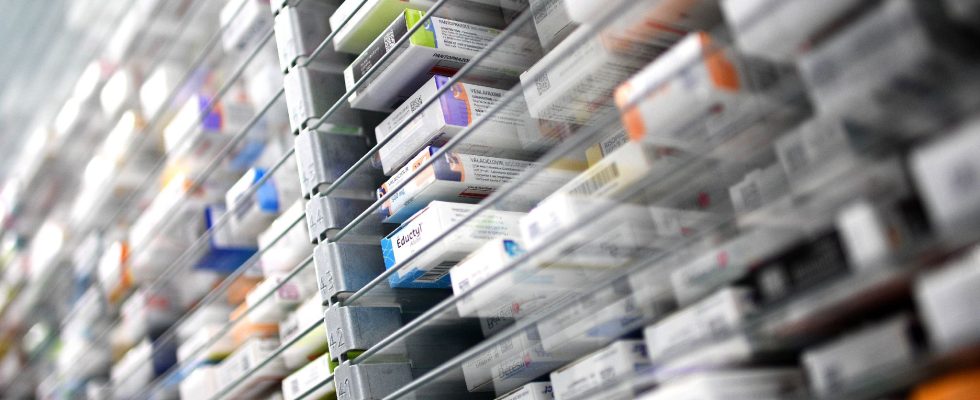One more prerogative for pharmacies. This Friday, September 1, the new Minister of Health Aurélien Rousseau confirmed that pharmacists could now prescribe antibiotics for patients affected by angina or cystine, the most common case of urinary tract infection. The announcement follows the declarations of Elisabeth Borne who, the day before, had specified that for these two pathologies, the pharmacist will be able to “deliver directly” the antibiotic “as soon as he has carried out a test to confirm the bacterial origin. ” of the disease and carried out an interview with the patient.
For the government, the objective is clear: to make medical treatment more effective for two diseases with known symptoms but treatment that is sometimes long to obtain, whether at the general practitioner or in the emergency room.
“When we facilitate access to care for our patients, it’s a good thing”, appreciates Pierre-Olivier Variot, president of the Union of community pharmacists (USPO), contacted by L’Express. Before adding: “I don’t think it’s the role of emergencies to take care of a simple urinary tract infection! When you know that the person is going to have to wait three or four hours, or even more, block interns and staff just to get a stamp…” A study published in 2021 by the French Association of Urology showed that urology emergencies accounted for nearly 600,000 visits per year, or 4.2% of all emergencies, with 25% of them resulting in hospitalization.
“We are present everywhere and all the time”
This measure intervenes above all in a dynamic of transmission of new skills to pharmacies, which has accelerated in recent years. Last August, already, a decree had officially opened all stages of vaccination to pharmacists – as well as nurses and midwives – for the prescription or injection of all mandatory and recommended vaccines. In May 2021, it was the renewal of prescriptions that had been very widely opened to pharmacists, without the patient needing to go back to a general practitioner. Finally, pharmacies can also, since March 1, 2022, help with colorectal cancer screening.
The trend towards expanding the role of pharmacists has been accelerated by the Covid-19 crisis, believes Pierre-Olivier Variot. According to him, the epidemic was able to show “that there was no deficiency or desert in our territorial network”. Above all, “it was a nationwide experiment that worked” in the context of expanding vaccination.
These extended prerogatives had long been demanded by pharmacies. Last July, the National Order of Pharmacists deemed it “essential” to continue expanding their missions for “rapid and simpler care” of patients, given the “difficulty of access to doctors”. An observation shared by the president of the USPO: “We are present everywhere and all the time. It is therefore logical that the care is evolving. This is what our patients wanted.” A measure which should also make it possible to “relieve congestion in medical offices and emergencies, and to free up medical time”, estimates Bruno Maleine, president of the Central Council of licensed pharmacists, to AFP.
“This does not solve the problem of access to the attending physician”
However, on the side of general practitioners, the sequence of these announcements makes people cringe. A press release published in December 2022 by the MG France union was already concerned about this dynamic initiated by the government. “We do not replace an attending physician with a pharmacist or a nurse, whatever their intrinsic professional qualities! All doctors know that a banal reason for consultation often hides a more serious concern”, underlined the first French union of generalists. In this regard, Aurélien Rousseau insisted that these measures were not intended to “replace the doctor”, but that it was a “sharing of tasks for the benefit of the French”. In the context of angina and cystines, if the pharmacist considers that the pathology is serious, he must redirect the patient to his attending physician.
If the president of the MG France union declared this Thursday, August 31 on France info that she had “no opposition” to this new development, she absolutely wants treating physicians to be able to have “feedback”, particularly in the context of repeated cystines. But for Agnès Giannotti, these measures mainly serve as a “cache-misere”, believing that “this does not solve the problem of access to the attending physician”, the “main problem” in his eyes.
Because behind these measures, it is difficult not to see a direct consequence of the medical desertification of part of France. Over the past ten years, the number of general practitioners practicing only in private practice has fallen by 11%, from 64,142 in 2012 to 57,033 in 2022, according to the Ministry of Health. Agnès Giannotti calls in particular for solving the problem of “working conditions and the attractiveness of the work of a general practitioner”, while the Health Insurance granted a revaluation of 1€50 of the consultation, insufficient according to the unions.
At the same time, this summer was also marked by a major crisis in emergency services, due to a lack of healthcare personnel, leading to occasional closures in certain hospitals. At the same time, the number of pharmacists remains stable at around 74,000, according to the National Order of Pharmacists. Enough to legitimize in the eyes of the government the expansion of the role of pharmacies, even if this desired “cooperation” between pharmacists and doctors seems above all to be done, for the moment, at a forced march.
